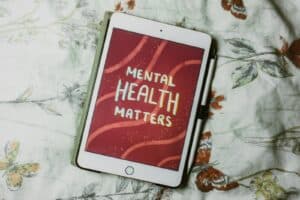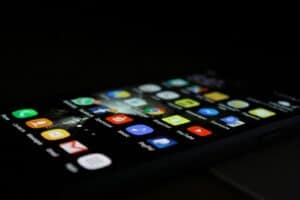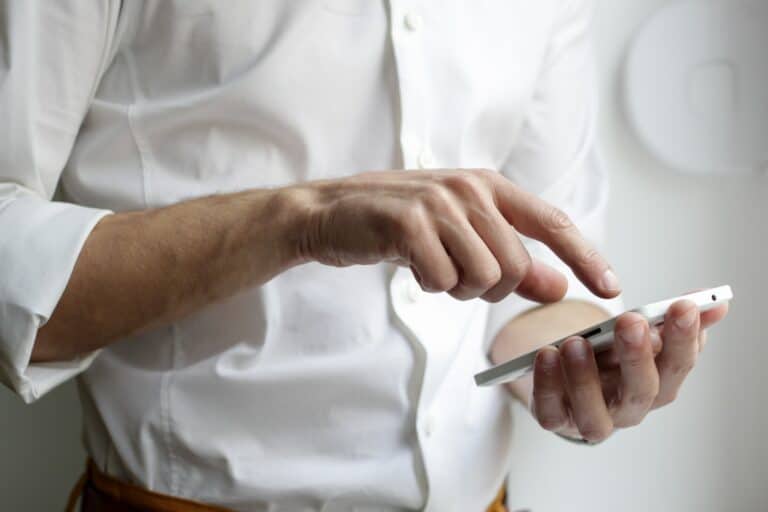In our fast-paced digital world, constant connectivity to digital devices has become the norm. Many of us find ourselves glued to screens, scrolling through social media feeds and dealing with the constant barrage of notifications. The impact of this digital overload on our well-being cannot be ignored. However, there’s a remedy that’s gaining popularity—digital detox. In this blog post, we’ll explore digital detox benefits, with a focus on detoxifying from social media, and how it can lead to improved mental and physical health, enhanced productivity, and stronger connections with others.
Understanding Digital Detox

In the contemporary era dominated by constant connectivity and digital engagement, the term digital detox refers to a conscious and intentional break from the overwhelming influence of digital devices. It involves stepping back from the relentless notifications, social media sites, and various digital applications that permeate our daily lives. This deliberate disconnection allows individuals to recalibrate their relationship with technology, recognizing the impact it has on mental health, sleep quality, and overall well-being. Digital detox means to the proactive decision to reclaim a sense of control over one’s digital life, creating space for genuine human connections, uninterrupted moments of self-reflection, and a reprieve from the continuous stream of information that characterizes the digital age.
Taking a digital detox involves more than just reducing screen time; it signifies a commitment to establishing healthy boundaries between individuals and their digital devices. It encourages a shift in focus from the virtual world to the tangible, fostering an awareness of the negative impact excessive technology use can have on various aspects of life.
The Impact of Digital Overload
Increased Stress and Anxiety
Living in a digital world exposes us to a continuous stream of information, often overwhelming our brains and leading to increased stress and anxiety. Studies in social and clinical psychology have highlighted the negative impact of constant connectivity on mental health.
Disruption of Sleep Patterns
Our reliance on digital devices, especially before bedtime, has been linked to poor sleep quality. Research shows that the blue light emitted by screens interferes with the production of melatonin, a hormone responsible for regulating sleep. Digital detoxing involves recognizing and addressing these disruptions to achieve better sleep.
Negative Effects on Mental Health
The constant comparison to others’ lives on social media can contribute to feelings of inadequacy, impacting self-esteem and self-image. Detoxifying from social media allows individuals to step back and reevaluate their priorities, reducing the mental strain caused by the relentless pursuit of a curated online persona.
Digital Detox Benefits

- Improved Mental Health: One of the primary benefits of a digital detox is the significant improvement in mental health. Disconnecting from social media detoxes the mind from the constant influx of information, reducing stress and promoting mental clarity. Research links social media use to increased feelings of anxiety, and a break provides relief from this constant pressure.
- Better Sleep Quality: Unplugging from digital devices, especially before bedtime, positively impacts sleep quality. Spending time away from screens helps regulate sleep patterns, making it easier to fall asleep and stay asleep. Establishing boundaries, such as putting phones on airplane mode, can create a conducive environment for restful sleep.
- Enhanced Productivity: Constant connection to social media and other digital distractions can hinder productivity. Digital detoxing encourages individuals to create boundaries by designating specific times or areas as off-limits for technology use. This intentional reduction in screen time allows for increased focus and productivity in other aspects of life.
- Strengthening Relationships: Excessive use of digital devices can strain personal relationships. By detoxifying from social media and spending more quality time with friends and family, individuals can foster stronger connections. Real-life interactions, free from the distractions of screens, contribute to a more meaningful and fulfilling social life.
Practical Tips for a Successful Digital Detox
- Setting Realistic Goals: Starting on a digital detox journey begins with setting realistic goals. Whether it’s a few hours, a day, or longer, establish a timeframe that aligns with your lifestyle. Start small and gradually extend the duration as you become more comfortable with the process.
- Choosing the Right Duration for a Detox: The optimal duration for a digital detox varies for each individual. Consider factors such as work commitments, social obligations, and personal preferences. Some may find benefit in a weekend detox, while others may opt for a more extended break. It’s essential to find a balance that works for you.
- Alternative Activities During a Detox: Replace digital activities with enriching alternatives. Engage in hobbies, spend time outdoors, read a book, or reconnect with activities that bring joy. This not only helps fill the void left by reduced screen time but also contributes to a more fulfilling and balanced life.
Real-life Success Stories

Personal Experiences of Digital Detox
To illustrate the transformative power of a digital detox, let’s explore real-life success stories. Individuals who intentionally reduced their time online share their experiences of improved well-being, increased productivity, and enhanced relationships. These anecdotes serve as inspiration for those contemplating a digital detox.
Less Stress, More Well-being
Many attest to experiencing less stress and increased mental well-being after a digital detox. By disconnecting completely, individuals create space for self-reflection and self-care, leading to a more relaxed and centered state of mind.
Improved Relationships
Some success stories highlight the positive impact on personal relationships. Whether it’s a family member, friend, or partner, the act of disconnecting allows individuals to fully switch their attention to those around them, fostering deeper connections and a more profound sense of belonging.
The Science Behind Digital Addiction
Constant Connectivity and Increased Stress
Research shows a direct correlation between constant connectivity and increased stress levels. The incessant need to stay connected, constantly checking for updates and responding to messages, can lead to heightened anxiety. Understanding the science behind digital addiction helps us recognize the importance of intentional breaks to alleviate this stress.
Study Published on Technology Use
A study conducted by experts in the field sheds light on the impact of excessive technology use. The findings suggest an increased risk of anxiety and feelings of anxiety when individuals are constantly checking their phones and spending extended periods online. This highlights the necessity of adopting a mindful approach to technology use for the sake of our mental well-being.
Setting Boundaries for a Healthy Relationship with Technology
Creating boundaries with digital devices is crucial for maintaining a healthy relationship with technology. Whether it’s designating specific times for checking messages or establishing tech-free zones in your home, setting these boundaries helps prevent the negative effects associated with constant connectivity.
Navigating the Digital World: Creating Healthy Habits
- Reducing Screen Time: Taking intentional breaks from screens doesn’t mean complete avoidance of technology; it’s about using it more consciously. Research shows that intentionally reducing screen time can alleviate eye strain, provide relief from the constant stream of information, and contribute to a healthier lifestyle.
- Implementing Airplane Mode and Do Not Disturb: Practical measures, such as putting your phone on airplane mode or activating the do-not-disturb feature during specific hours, can be game-changers. These actions not only reduce exposure to push notifications but also create a sense of control over your technology use.
- Spending Quality Time Offline: Deliberately spending time in different rooms away from digital devices contributes to a healthier balance. Engage in activities that don’t involve screens, such as enjoying a meal in the dining room without your phone, or spending quality time with family members without the distraction of electronic devices.
Embracing Digital Detox as a Lifestyle

Understanding the Influence on Self-Esteem
The perpetual comparisons witnessed on various social media sites often trigger emotions of inadequacy and a skewed self-perception. Opting for a social media detox not only shields individuals from the perils of constant social comparison but also empowers them to concentrate on their unique journey, nurturing a more robust sense of self-esteem.
Taking Interludes for Self-Rediscovery
Purposefully decreasing screen time opens up avenues for individuals to rediscover themselves. Whether it involves mindfulness practices like meditation, expressing thoughts through journaling, or relishing moments of solitude, these breaks from the digital realm offer moments for introspection, fostering personal growth.
Establishing Digital Detox as a Routinely Embraced Habit
To fully relish the advantages of a digital detox, contemplate incorporating it into your routine as a habitual practice. Intermittent pauses from the incessant buzz of digital devices, including social media apps and other devices, contribute significantly to a more harmonious and satisfying life. By making digital detox a regular part of your lifestyle, you forge a sustainable pathway to well-being in this digital age.
Closing Thoughts
In conclusion, the benefits of a digital detox extend far beyond the temporary relief from screen time. The intentional act of detoxifying from social media and other digital devices has profound effects on mental health, sleep quality, productivity, and relationships. By setting boundaries and reclaiming control over our technology use, we can create a more balanced and fulfilling life.
Other suggested articles:

